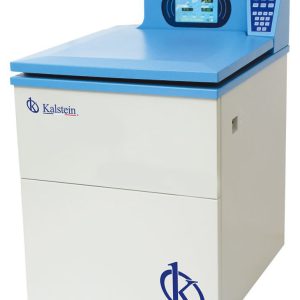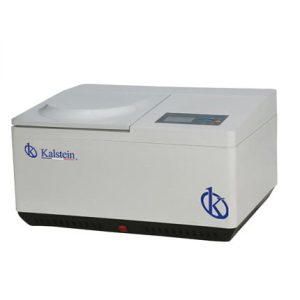Centrifuges
It is a device used in the processes of separation of sedimentation of the liquid and solid components of a sample, this device generates rotational movements and through centrifugal force accelerates the decantation or sedimentation of the components of the sample, according to their density, there are different types of centrifuges, which pursue the same objectives.
In laboratories, centrifuges produce a rotation at high speeds, separating by layers the different materials that make up the sample and that generates that the densest elements of it are deposited in the lower part of the container and the lightest ones are kept in the upper part of it; the relative force of centrifugation is measured in multiples of gravity, and that by its physical size cannot be represented in units.
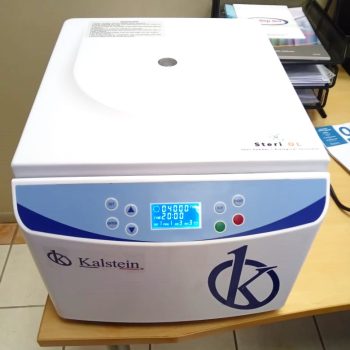
Types of Centrifuges a Laboratory May Need

Non-refrigerated Centrifuges
Centrifuges are used in laboratories for research purposes, to separate certain parts of a cell or DNA, commonly used in molecular biology to perform blood tests, on the other hand, they are used for the production of fuel, where centrifuges separate the product from sediments; a very important application is the separation of Ukrainian 235 from uranium-238.
They also serve to quantify the degree of fat or cream contained in the milk, for the elaboration of olive oil, since they are introduced into the horizontal centrifuge, where the oil is separated from the rest of the components; widely used in control laboratories and factories where they make juices where they control the level of their pulp; they are used in laboratories where they separate plasma from blood serum; allowing the use of accessories for centrifuges according to the analysis or research required to make creams, butters, among other products.
Refrigerated Centrifuges
The centrifugal force accelerates the sedimentation process of particles that have a tendency to do so spontaneously (those that have a density greater than that of the liquid), or in those that tend to float (density lower than that of the liquid).
The type of clinical procedure and the size of the laboratory are two very important factors when choosing a centrifuge. Although there are many models and types of centrifuges, their operation is always the same: all centrifuges rotate the samples around a fixed angle and separate fluids from solid substances by applying the sedimentation principle.

In Kalstein you can find the ideal Centrifuges for your Laboratory

High-speed refrigerated microcentrifuge YR111-5
This multipurpose centrifuge has advanced and intelligent technology. Control by microcomputer, large LCD...
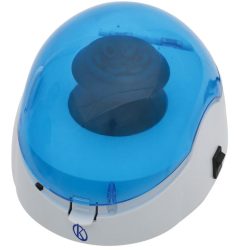
Mini centrifuge YR143
The centrifuge instrument is specialized in the manufacture of centrifuges with a long trajectory. There is great technical force, R & D capacity, advanced...

Microhematocrit centrifuge YR134-2
Microcomputer control, brushless DC engine, stable operation, low noise level. LED display, easy-to-use interface...

Mini centrifuge YR144
When the centrifuge is in the pre-cooling state, the cap of the centrifuge must be closed. Once the centrifuge is finished, the rotor must be placed on the test bench and the...
Our Best Selling Centrifuges
- There are several rotors, supports and adapters available.
- Microprocessor control, driven directly by a high torque motor and frequency conversion without carbon contamination which can prolong the life.
- It is programmable, touch panel, LED display. Speed, time and RCF can be freely configured.
- 9 ACC profiles and 10 Dec profiles (No.0 is free to stop), 2 cushion levels, the centrifugal effect is the best.
| Model | YR124-1 |
| Maximum speed | 5,000r/min |
| RCF Max | 3 660 x g |
| Maximum capacity | 4 x 750ml |
| speed acceleration | ±10r/min |
| Adjustment Range | 1min to 99min |
| Noise | <65dB(A) |
| Power supply | AC 220V±22V 50/60Hz 10A |
| Power | 1 100w |
| Dimension (W×D×H) | 590 x 710 x 1140 (mm) |
| Package Size | 790 x 910 x 1420 (mm) |
| Net weight | 110Kg |
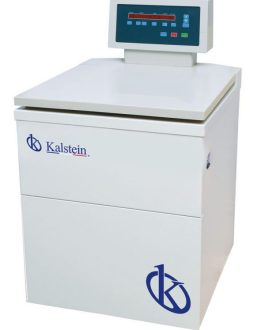
Analysis of the best Centrifuges for your Laboratory
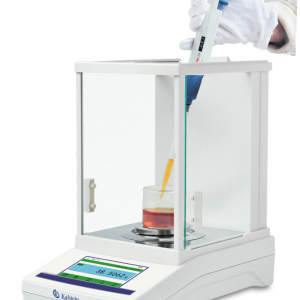
What is a centrifuge?
Centrifugation is a mechanism for separating mixtures (in particular, those made up of solids and liquids of different densities) through their exposure to a rotating force of...
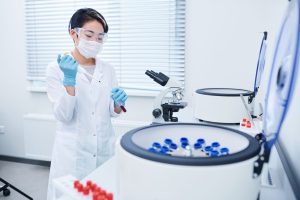
What is a hematocrit centrifuge?
A centrifuge for hematocrit is specialized equipment that allows to obtain the compact ratio of the volume of ...
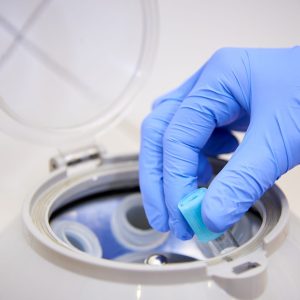
What is a high speed centrifuge?
High-speed centrifugation is an irreplaceable tool for the isolation and characterization of multiple biological...

Centrifuge: rotor types
The centrifuge is a laboratory equipment that generates rotational movements, it has the objective of separating the components that constitute a substance...
Catalog of Centrifuge models on offer
-

Speed table centrifuge YR134
Select options This product has multiple variants. The options may be chosen on the product page -

Cytocentrifuge YR142-4.
Read more -

Centrifuge PRP YR469
Read more -

High-capacity Refrigerated Centrifuge YR120
-

Microhematocrit centrifuge YR134-2
-

High-speed refrigerated centrifuge YR0111-3
Select options This product has multiple variants. The options may be chosen on the product page -

High-speed Centrifuge Table YR0125
Select options This product has multiple variants. The options may be chosen on the product page -

High-speed Refrigerated Centrifuge YR0111-1
Guides to becoming a Centrifuge expert
What is the function of the refrigerated Centrifuges?
Refrigerated laboratory centrifuges are equipment used to achieve the sedimentation of the components in...
The Centrifuge: An Essential Element - Laboratory
A centrifuge is an apparatus that applies a sustained centrifugal force (that is, a force produced by rotation) to impel ...
Centrifugation: RPM vs. G Force - Laboratory
Centrifugation is one of the most important and widely applied research techniques in biochemistry, cell and ...
What are the Applications for High Speed Centrifuge and Low Speed Centrifuges?
Generally, centrifuges are equipment that form rotating movements, managing to separate elements in the samples for study separately, either by decanting or sedimentation...
Videos of Centrifuges in operation
In this section you can find, our Centrifuges in operation, packaged, receiving service, etc...
Centrifuges in operation
High-speed centrifuges are essential equipment for the isolation and characterization of multiple biological structures: from biomolecules, such as nucleic acids and proteins, to cellular organelles.
High-speed centrifuges are specialized centrifuges that reach maximum speeds between 18,000 and 25,000 rpm (they can generate around 60,000 g). They are refrigerated and normally have a vacuum system to avoid heating the rotor. This vacuum system allows them to have a more exact temperature control than those that do not do a vacuum. They are useful in the separation of cell fractions, but insufficient for the separation of ribosomes, viruses or macromolecules in general.

Frequently Asked Questions about Centrifuges
How to know the prices of Centrifuges?
To know the price of Centrifuges we invite you to send us an email with your request through the contact form.
What are the delivery times for Centrifuges?
- If the equipment of your interest is in stock or if it must be manufactured.
- The type of freight you have chosen, this may be; air or sea.
How to make a purchase of Centrifuges?
- By email: [email protected]
- By telephone: +33 (0) 1 78 95 87 02
- E-commerce: Via Kalstein's official website in your country.
How does the warranty work?
Can I request a quote online?
Of course, you can request a quote for the Kalstein team of your interest, directly from our official website. Once you have identified your preferred model, click HERE






